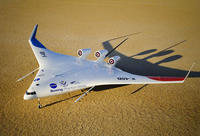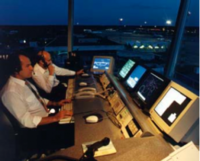-
TSA workers accused of profiling to take mandatory class
Transportation Security Administration (TSA) officers in a Behavioral Detection Program (BDP), a program designed to spot terrorists at airports, will now have to take special training after officers at a Boston airport were accused of racially profiling passengers
-
-
Effective airport security without profiling
A security expert who helped create new security protocols at Logan right after 9/11, says, “Before jumping to conclusions [about what happened at Logan] we need to ask” a few questions
-
-
TSA accused of racial profiling at Boston airport
The Transportation Security Administration(TSA) has been accused of widespread racial profiling in its new initiative to flag potential terrorist threats at Logan International Airport in Boston; reports say that more than thirty federal officers involved in the Behavior Detection Program said the operation targets Black and Hispanic people as well as people of Middle Eastern descent
-
-
Wind farms pose risks to ultra-light aircraft
Airfields for ultra-light aircraft are typically constructed on level ground — and so are wind farms; do wind power plants generate turbulence that could endanger lightweight planes? A simulation can compute how these power plants influence aircraft at various wind speeds and wind directions
-
-
Advanced explosives detector sniffs out previously undetectable amounts of TNT

TNT and other conventional explosives are the mainstays of terrorist bombs and the anti-personnel mines that kill or injure more than 15,000 people annually in war-torn countries; in large, open-air environments, such as airports, train stations, and minefields, concentrations of these explosives can be as small as a few parts of TNT per trillion parts of air, making it impossible for conventional bomb and mine detectors to detect the explosives and save lives
-
-
Futuristic blended wing body aircraft passes flight test

Boeing took another step forward in exploring a revolutionary concept — the blended wing body (BWB) — which one day could offer breakthroughs in flight; the X-48B, an unmanned research aircraft which is a scale model of a heavy-lift, subsonic vehicle that forgoes the conventional tube-and-wing airplane design in favor of a triangular aircraft that effectively merges the vehicle’s wing and body, proved during a flight test program that a BWB aircraft can be controlled as effectively as a conventional tube-and-wing aircraft during takeoffs and landings, as well as in other low-speed segments of the flight regime
-
-
Global air control system largely defenseless against hacking

The ADS-b system, the multi-billion dollar communication system deployed at airports around the world over the last few years, has two major flaws: first, it has no means of verifying who is actually sending a message, which means that a hacker can impersonate an aircraft and send malicious and misleading information to control towers and to other aircraft; second, the position, velocity, and other information broadcast by aircraft is not encrypted and can be grabbed from the air; a presenter at the Black Hat cybersecurity event showed how it is possible to use the information to plot the route of Air Force Phone on an iPad; these two vulnerabilities can be easily exploited by anyone with modest technical skills and about $2,000 worth of electronics
-
-
Bill to tighten admission procedures to flight schools
A bill would require flight schools to check students, including U.S. citizens, against the terrorist watch list before they can be trained to fly aircraft of 12,500 pounds or more
-
-
Looking at planes with bird's eye could cut collisions with aircraft
Aircraft collisions with wildlife — primarily birds — is a serious and growing threat to civil and military aviation, as well as an expensive one: bird strikes cost civil aviation alone more than $1.2 billion a year world-wide
-
-
The complexities of the human face: analyzing facial recognition technologies in unconstrained environments
Chris Archer, the online content editor at IDGA (the Institute for Defense & Government Advancement), talked with Thirimachos Bourlai, research assistant professor at West Virginia University, about facial recognition technologies; the human face has several advantages over other biometric traits: it is non-intrusive, understandable, and can be captured in a covert manner at variable standoff distances; Bourlai examines the various challenges of facial recognition as a biometric technology faces; defines “unconstrained recognition” and how this challenge is being met; he also explores how facial recognition will be used by the military and commercially in the short and long term future
-
-
Airport security screening technology market to grow
In 2011, TSA distributed approximately $437.1 million in contract obligations toward airport screening technologies; this amount is likely to grow in coming years as airport security authorities look for technology which would allow them to balance the requirements of tight security, on the one hand, and demands from the public for faster and less intrusive screening measures
-
-
TSA looking for device to replace pat-downs
DHS is soliciting ideas from technology companies for a hand-held scanner which may be used instead of pat-down searches on passengers who set off alarms as they go through a full-body scanner
-
-
Washington Homeland Security Roundtable launches Senior Executive Industry Forum
The Washington Homeland Security Roundtable (WHSR) today announced the creation of the WHSR / TSA Senior Executive Industry Forum, in collaboration with the Transportation Security Administration (TSA); the kick off meeting of the Forum will take place on 5 June, with an address by TSA administrator John Pistole
-
-
Canadian airports deploy desktop explosives trace detection systems
The Canadian Air Transport Security Authority (CATSA) acquired sixty-three desktop explosives trace detection (ETD) systems to be deployed to airports in Canada to support passenger and baggage screening efforts
-
-
Robust growth continues for aviation security industry
Existing threats, rising passenger numbers, and airport expansion projects mean that the global aviation security market will reach $22.3 billion in 2012
-
- All
- Regional
- Water
- Biometrics
- Borders/Immig
- Business
- Cybersecurity
- Detection
- Disasters
- Government
- Infrastructure
- International
- Public health
- Public Safety
- Communication interoperabillity
- Emergency services
- Emergency medical services
- Fire
- First response
- IEDs
- Law Enforcement
- Law Enforcement Technology
- Military technology
- Nonlethal weapons
- Nuclear weapons
- Personal protection equipment
- Police
- Notification /alert systems
- Situational awareness
- Weapons systems
- Sci-Tech
- Sector Reports
- Surveillance
- Transportation
Advertising & Marketing: advertise@newswirepubs.com
Editorial: editor@newswirepubs.com
General: info@newswirepubs.com
2010-2011 © News Wire Publications, LLC News Wire Publications, LLC
220 Old Country Road | Suite 200 | Mineola | New York | 11501
Permissions and Policies
Editorial: editor@newswirepubs.com
General: info@newswirepubs.com
2010-2011 © News Wire Publications, LLC News Wire Publications, LLC
220 Old Country Road | Suite 200 | Mineola | New York | 11501
Permissions and Policies
